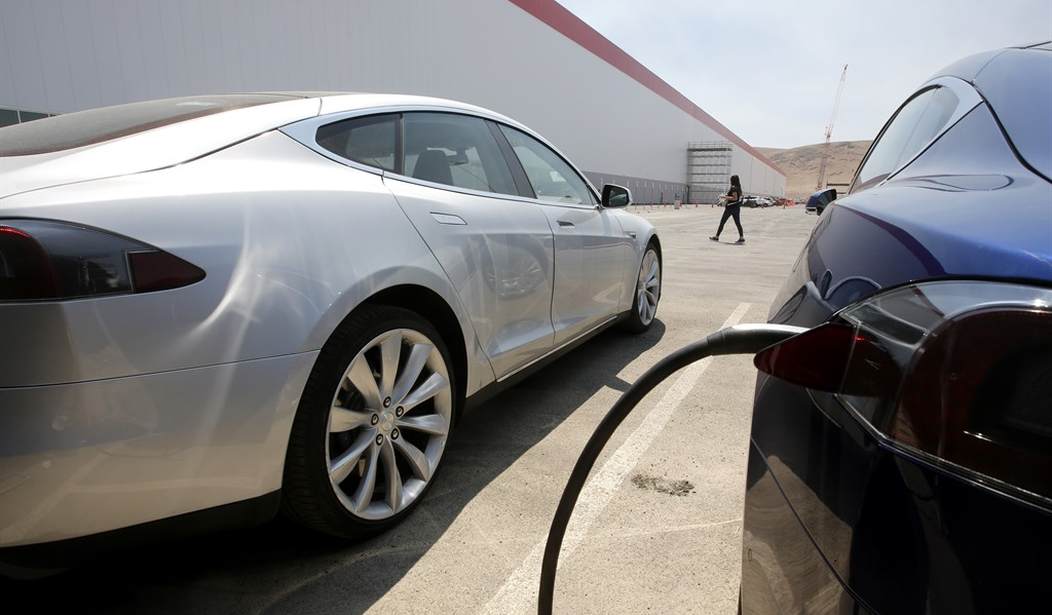The clean energy future is well underway, but it faces severe headwinds. While politicians and companies pour billions of dollars into clean energy projects, we’re still refusing to deal with a very simple but very real threat to this future: a lack of critical mineral supplies. Please don’t misinterpret this - the problem is not the scarcity of availability of these resources on Earth, but rather the fact that we are making it near-impossible to mine them.
Critical minerals are the building blocks of a successful clean energy future. These minerals are used in virtually every clean energy technology, from electric vehicles to solar panels to wind turbines. As we undergo the energy transition, demand for critical minerals is projected to skyrocket by nearly 1,000 percent over the next few decades. Demand for some minerals, such as lithium and graphite used in battery storage technologies, could increase by up to 4,000 percent. The problem, however, is that global critical mineral supplies are not on track to meet that demand. Nowhere near it.
In fact, new data from McKinsey shows that minerals needed for lithium-ion batteries could face shortages of 10-20 percent this decade. Even worse, dysprosium, used in electric vehicles and wind turbines, could experience as much as a 70 percent deficit. The International Renewable Energy Agency is also sounding the alarm about insufficient mineral supply slowing or even derailing renewable energy deployment. This is worrying, considering that such stark supply shortages could produce additional greenhouse gas emissions of hundreds of millions of tons, making it near impossible to meet our climate goals. Our ability to tackle climate change is directly linked to our ability to mine for more critical minerals. In fact, the largest reason for this predicted shortage is limited capacity for mining globally. Nowhere is the problem more obvious than right here in America, where we actually have abundant critical mineral reserves, but self-imposed barriers, including a duplicative and byzantine permitting regime, are preventing us from mining them.
Recommended
The debt ceiling deal that was negotiated by both President Biden and Speaker McCarthy last month, officially called the Fiscal Responsibility Act, took the first step in streamlining the permitting process for a variety of critical energy infrastructure, including mines. However, it wasn’t nearly comprehensive enough. Domestic critical mineral supply chains remain in peril.
It takes an average of 10 years to receive government approval and merely break ground on a mining project. That is more than twice the time it takes for an energy infrastructure project, which takes an average of 4.5 years.
Essentially, this means that while some energy projects could be approved faster thanks to the recent legislation, the critical mineral resources required to build them won’t even be available. Unless we plan to keep importing them from other countries - often adversaries - but, even then, global supply can’t keep up with increasing demand. We are already 50% import-reliant for 51 minerals and 100% import-reliant for 15. Most alarming is that China dominates these markets, supplying 80% of America’s rare earth mineral imports. This overreliance raises critical national security concerns and the risk of supply chain disruptions that could make prices soar and thwart our clean energy future, not to mention that China has some of the lowest labor and environmental standards in the world.
Streamlining America’s current permitting system for critical mineral mines is of paramount importance. The right policies can ensure a strong domestic critical mineral supply, increase national security, reduce emissions in the long run, and ensure the leading-edge industries that depend on these materials have the secure, responsive supply they require.
As Republicans and Democrats continue discussions about permitting reform following the Fiscal Responsibility Act, it is imperative that they prioritize critical mineral mining. It won’t do us any good to approve energy infrastructure projects more quickly if we don’t have the materials needed to build them. Our clean energy future depends on a strong domestic critical mineral supply chain. Congress must make it possible to mine in America.
Christopher Barnard is the vice president of external affairs with the American Conservation Coalition (ACC). Follow him on Twitter @ChrisBarnardDL.

























Join the conversation as a VIP Member